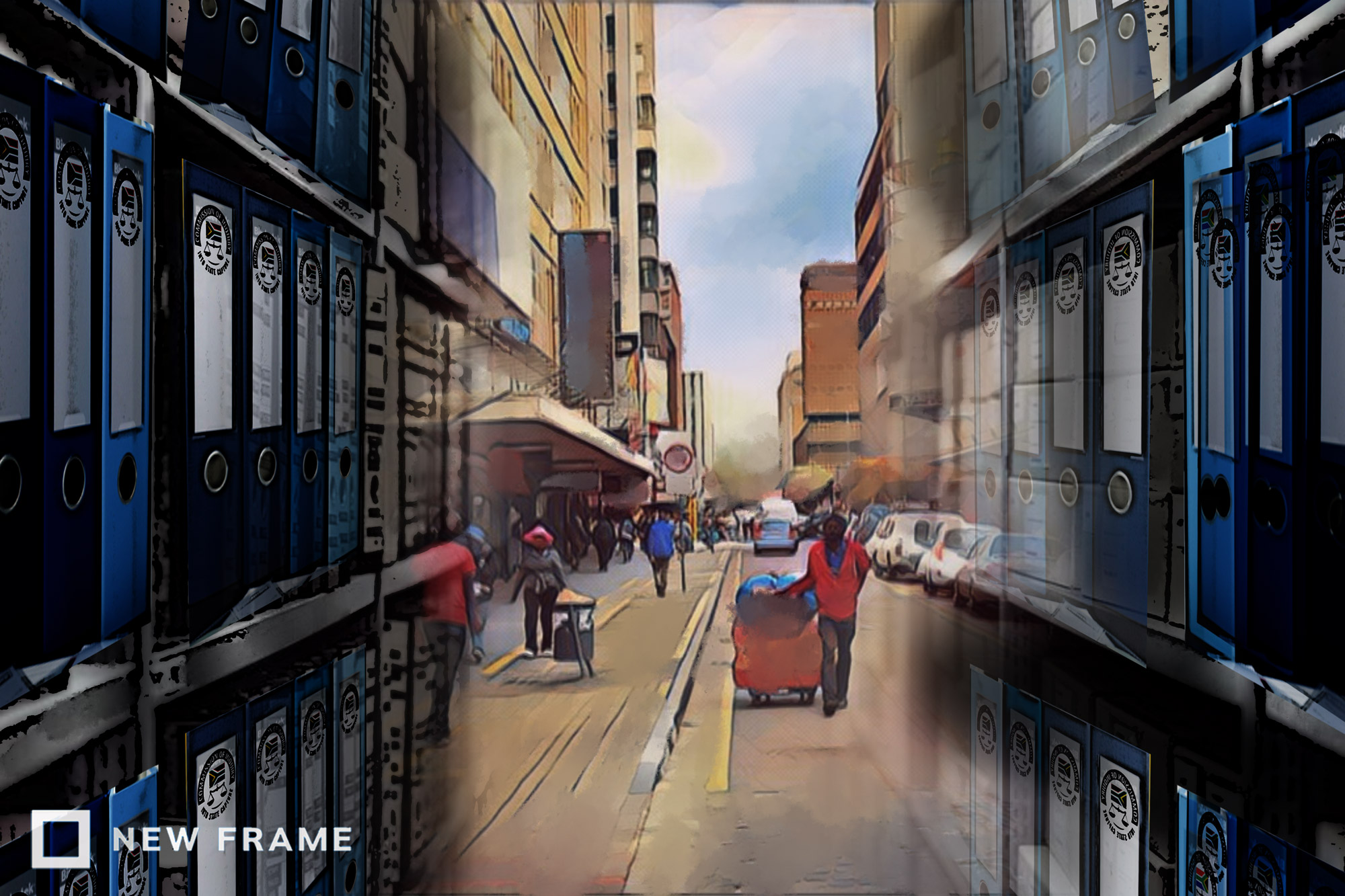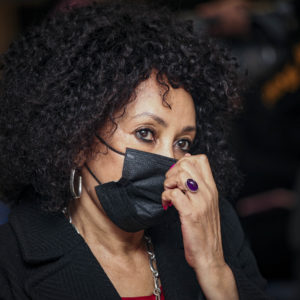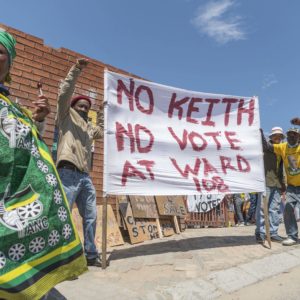The hard road after Zondo
As we seek to gauge the full significance of the Zondo commission’s second report, a critical question arises: Where do we go from here?
Author:
4 February 2022

We have known for some time that there was a precipitous decline in the integrity of the state, and the ANC, during Jacob Zuma’s period in office. By 2013, grassroots activists in Durban, who were beginning to face regular assassinations, were frequently describing the ANC, and sometimes the state, in terms of “gangsterism”. By 2017, investigative journalists were beginning to drill down into the mechanisms that enabled large parts of the state and its entities to be looted by thoroughly rotten actors in the ANC, the state and business.
The first two reports of the Zondo commission have not, in the larger sense, told us anything we did not already know about our society. But they have provided an authorised and often detailed record of some of what happened in the highest echelons of the ruling party, the state and business. The moral standing of the ANC, already irredeemably damaged, is now even more tenuous. Individuals like Malusi Gigaba, Brian Molefe and Lynne Brown have suffered irreparable damage to their reputations. And, of course, the standing of Bain & Company is now – like KPMG, McKinsey and Bell Pottinger before it – in free fall.
Related article:
But the prospects of real reform in the ANC are meagre. That so many compromised people remain in its leadership and in the Cabinet, and that a figure like Zweli Mkhize is seriously being considered as a “compromise” candidate for the premiership of KwaZulu-Natal, is a clear indication that the party has neither the will nor the capacity to make a decisive break from its degeneration into a predatory blight on society.
Initial optimism about a retooled and reinvigorated National Prosecuting Authority taking swift and effective action against the criminality of elites in the state and business collapsed long ago. After years of brazen impunity for even publicly documented criminality, it seems all too likely that our prisons will continue to be full of impoverished people, some of whom have been there for years without a conviction.
A structural crisis
But even if one or two leading figures in government and business are successfully prosecuted, it would not resolve the fundamental problem of the structural crisis in the ANC. Nor would it address how this metastasised into other parties, most notably the EFF and the Patriotic Alliance, and into other parts of society, from Twitter and business to party politics in shack settlements.
As others have said, Zuma may have been defeated, but Zumaism flourishes. It is, in some respects, not entirely unfair to understand it as a less fully developed form of the predatory forms of personal accumulation defended with authoritarianism and masked with a façade of radical nationalism that we associate with figures as grotesque as Mobutu Sese Seko and François Duvalier.
Related article:
Much of the discussion in the elite public sphere implicitly assumes that, as the old saying goes, the fish rots from the head. There is no doubt that leaders often have a powerful role in shaping the culture of an organisation. But the roots of the attack on the integrity of the state that was launched from within the leadership of the ANC reach deep down into the party’s base – its ward councillors and branches.
We should not forget that, as journalist Niren Tolsi first showed, the campaign to push Zuma into power at the ANC’s Polokwane conference in 2007 was led from Durban by the chairperson of the party’s eThekwini region at the time, the late John Mchunu. Mchunu’s own base included party branches, which were often called into action – sometimes violent – through a mixture of ethnic incitement and the promise of financial reward. Even if it were possible for a new cohort of people with real political and personal integrity to ascend to the leadership of the party, a prospect that seems wildly unlikely, this would not on its own mean that the ANC would be easily salvaged given the profound rot in its branches.
Organised violence
Without a credible electoral alternative in Parliament, or a popular movement with the national reach and power to mount a serious challenge from below, and with increasingly well-organised forms of violence – ranging from political assassinations to the xenophobic groups that are now rapidly proliferating – the road ahead can only be perilous. Last week the army was mobilised to contain a protest from the Jika Joe shack settlement in Pietermaritzburg, a place where many people have lived in squalor since 1994. This may be an intimation of things to come.
But while it is important that we steel ourselves for the years ahead – siziqinise, as frontline activists often say – we should not be too surprised that things have come to this. The widely shared fantasy of South African exceptionalism and the ANC carrying an almost divinely ordained historical mission were always delusions. We were always going to become what the late Neville Alexander, one of our significant intellectuals, called “an ordinary country”.
And as Jamaican academic Orlando Patterson has recently shown, the idea that democracy automatically leads to peace is, in straightforward empirical terms, a fiction. He notes the evidence that “intermediary democracies” have a clear tendency towards violence, and the argument that states ruled by authoritarianism do not suddenly become stable democracies as political change “deconsolidates” political institutions at a pace that outstrips the building and entrenchment of new institutions, with the result that democratising countries will have to negotiate a difficult period.
Related article:
Examining the violence endemic to electoral politics in Jamaica, Patterson notes that while ballots can substitute for bullets – such as in South Africa in 1994 – “there is no shortage of cases of ballots leading to bullets” and that “the historical evidence indicates that nearly all democracies experience violence on their path to maturity”.
Building an inclusive and democratic peace, a state with integrity and capacity, and forms of popular democratic organisation to discipline the state from below will not be an easy task. Many formerly colonised countries have not been able to achieve this after 50 years or more.
Those who are unwilling to traverse the road ahead will leave if their means allow. But those who are willing to confront the realities of our historical situation – a challenge that most societies on the planet have had to confront since the end of the colonial period – must be clear-eyed about the scale and intensity of the challenges ahead. This is no time for cheap talk and fantasies of easy solutions.



